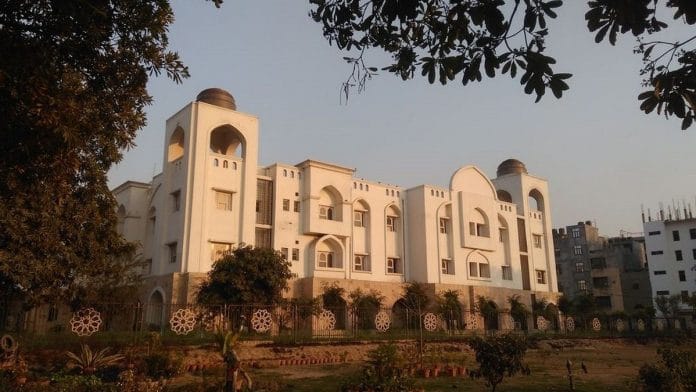After the triple talaq ban and Uniform Civil Code push in states, the next big overhaul of practices concerning the Indian Muslim community is the waqf board. It is ripe for reform, many Muslim leaders agree. But what kind of reform? The Narendra Modi government introduced the ambitious Waqf Amendment Bill 2024 this week. The pushback was instant too.
It was called “draconian” by Congress leader KC Venugopal. Samajwadi Party president Akhilesh Yadav alleged that the Bill was introduced to appease BJP supporters. Union Minority Affairs Minister Kiren Rijiju defended the Bill, saying “it has been brought to give justice to ordinary Muslims”.
Tabled in the Lok Sabha on Thursday, the Bill proposes to grant the Centre significant authority in regulating waqf properties. Major changes have been proposed to make the administration more efficient and prevent “misuse”. The Bill has now been referred to a Joint Parliamentary Committee.
Non-Muslims cannot donate property for waqf, but they will be included in state boards and central councils for the management of waqf properties in India. This is among the 44 amendments proposed to overhaul the regulatory framework of Muslim charitable endowments.
The united Opposition came down heavily on the Centre, alleging that the Bill had been introduced with an eye on the Haryana and Maharashtra Assembly elections. Legal experts say that the “contentious provisions” are likely to open floodgates for disputes over ownership of waqf properties. And this is why the Waqf (Amendment) Bill 2024 is ThePrint’s Newsmaker of the Week.
‘Misuse’ of waqf property
This is not the first time the Centre has proposed amendments to the Waqf Act. First enacted in 1954, the Act laid the foundation for state waqf boards, whose powers were significantly increased in 1995 when the old Act was repealed and replaced by a new one.
In 2013, the UPA government made sweeping changes to the Act, which made the sale of waqf properties virtually impossible and introduced stringent punishment for their misuse.
The concept of waqf refers to dedicating one’s movable or immovable property exclusively for religious or charitable purposes under Islamic law. Once a property is declared waqf, it remains so permanently and must be used for the welfare of the community.
The irrevocability of such properties has led to many disputes in the past.
While introducing the Bill in the Lok Sabha, Rijiju stated that the amendments were necessary to address the misuse of waqf properties. He cited the case of the Surat Municipal Corporation headquarters, which was declared waqf property by the Gujarat Waqf Board in 2022.
“In Karnataka, in 2012, a report of the Karnataka Minorities Commission said the Karnataka Waqf Board converted 29,000 acres to commercial land. Can you do it?” he said.
While a section of Muslims has welcomed the amendments, saying these will end the “dictatorial” functioning of state waqf boards and misuse of waqf properties, many are opposing it. They say the amendments will lead to “Collector Raj”.
Overhaul of the board, tribunal
The 2024 Bill proposes several measures to streamline the registration and management of waqf properties. These include making waqf deeds mandatory for the creation of waqf properties, establishing a centralised system for their registration, and requiring mandatory participation of women on waqf boards, among other changes.
However, legal experts and Muslim scholars argue that several provisions of the amendment Bill are problematic. They contend that the Bill weakens the powers of waqf boards and tribunals and may result in more disputes over waqf properties.
One major change is the proposal to grant district collectors additional powers, including the authority to survey waqf properties. Collectors would also act as arbiters in disputes over land ownership between private parties and government agencies. Currently, waqf boards conduct surveys and determine waqf ownership under Section 40 of the Act, but the new Bill proposes omitting this section.
“The new amendments will usher in a Collector Raj to decide at will what is a waqf and what is not. The finality of the waqf tribunals’ verdicts has been taken away and given to the district collector,” Zafarul-Islam Khan, former chairman of Delhi Minorities Commission, told ThePrint.
The provision to protect government land from being declared waqf property and the omission of ‘waqf by user’ (properties considered waqf-owned due to their use for religious purposes but lacking waqfnama or deeds) are likely to create additional problems, experts say.
Another contentious provision is the application of the Limitation Act of 1963 to waqf properties. Currently, this Act does not apply to waqf properties, a measure intended to protect them from encroachment if waqf boards fail to take timely actions against illegal occupants, according to experts.
Supreme Court advocate MR Shamshad said that a narrative is being created to project waqf boards as using this provision to “encroach upon land”. Applying the Limitation Act to waqf properties, Shamshad argued, “will only help illegal occupants to claim ownership by invoking the principle of adverse possession. It will only facilitate takeover of waqf properties.”
On the legal front, the Modi government has proposed dropping the provision that considers the tribunal’s decision as “final” in all matters related to waqf.
(Edited by Ratan Priya)







What about waqf misusing it’s power? Even court can’t intervene!!